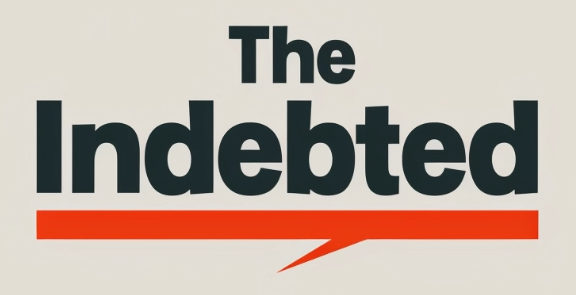Paying off debt can be a challenging and stressful journey. It requires discipline, patience, and a positive mindset. It’s easy to feel overwhelmed and discouraged when you’re faced with mounting debt, but staying motivated is key to achieving financial freedom. As someone who has been through this journey myself, I know how important it is to stay positive and keep pushing forward.
One of the first steps to staying motivated while paying off debt is to create a realistic plan. This will help you stay focused and on track, and give you a sense of accomplishment as you make progress towards your goals. It’s also important to celebrate small victories along the way, whether it’s paying off a credit card or making an extra payment on your student loan. These small wins can help keep you motivated and remind you that you’re making progress.
Another way to stay motivated is to surround yourself with positivity. This can include reading personal finance blogs, listening to podcasts, or joining online communities of people who are also on the journey to becoming debt-free. Having a support system can make all the difference, and it’s important to remember that you’re not alone in this journey. With the right mindset and support, you can stay motivated and achieve your financial goals.
Understanding Debt and Its Impact
Debt can be a significant source of stress and anxiety for many people. It can be challenging to stay motivated and positive while paying off debt, but it is essential to maintain a healthy mindset to achieve financial freedom. In this section, I will discuss the psychology of debt and how interest rates can affect your debt.
The Psychology of Debt
Debt can have a significant impact on our mental health. It is easy to feel overwhelmed and anxious when we owe money to creditors. According to a study by the American Psychological Association, financial stress is a significant source of anxiety for many Americans. It is essential to understand that debt is a common problem that many people face, and it is possible to overcome it.
To stay positive while paying off debt, it is crucial to reframe your mindset. Instead of focusing on the negative aspects of debt, try to view it as an opportunity for growth. Use it as a motivation to improve your financial habits and make better decisions in the future. Remember that paying off debt is a journey, and it takes time and effort to achieve your goals.
Interest Rates and How They Affect Your Debt
Interest rates are an essential factor to consider when it comes to debt. The higher the interest rate, the more you will pay in interest charges over time. Credit card debt and personal loans typically have higher interest rates than other types of debt, such as a mortgage.
To stay motivated while paying off debt, it is essential to understand how interest rates work. Consider creating a table or spreadsheet that outlines your debt, interest rates, and monthly payments. This will help you visualize your progress and understand how much you are paying in interest charges.
One strategy to reduce your interest charges is to pay off high-interest debt first. Consider using the debt avalanche method, which involves paying off debt with the highest interest rate first. This can save you money in the long run and help you pay off your debt faster.
Setting Clear Goals and Creating a Budget
When it comes to paying off debt, setting clear goals and creating a budget are essential steps to staying motivated and on track. In this section, I will discuss how to define your end goal and budget to stay on track.
Defining Your End Goal
Defining your end goal is crucial to staying motivated while paying off debt. Your end goal should be specific and realistic. For example, instead of saying “I want to be debt-free,” a more specific end goal could be “I want to pay off my credit card debt within the next 18 months.”
To define your end goal, start by listing all of your debts, noting how much you owe for each account, their interest rates, and due dates. With your income and budget in hand, figure out how much you can realistically afford to pay each month. Then, set a timeline for paying off each debt.
Budgeting to Stay on Track
Creating a budget is another crucial step to staying motivated and on track while paying off debt. A budget will help you track your income and expenses and ensure that you are living within your means.
Start by listing all of your monthly income sources, including your salary, any side hustles, and any other sources of income. Then, list all of your monthly expenses, including rent/mortgage, utilities, groceries, transportation, and any other bills or expenses you have.
Once you have your income and expenses listed, subtract your expenses from your income to see how much money you have left over each month. This amount should be used to pay off your debts.
To stay on track, it’s essential to review your budget regularly and make adjustments as necessary. If you find that you are overspending in one area, look for ways to cut back and reduce your expenses.
Strategies for Paying Off Debt
When it comes to paying off debt, it’s important to have a plan. Here are some strategies that have worked for me:
Debt Snowball vs. Debt Avalanche
There are two popular methods for paying off debt: the debt snowball method and the debt avalanche method. The debt snowball method involves paying off your smallest debt first, while making minimum payments on your other debts. Once the smallest debt is paid off, you move on to the next smallest debt and so on. This method can be effective because it provides a quick win and gives you momentum to keep going.
The debt avalanche method, on the other hand, involves paying off your debt with the highest interest rate first, while making minimum payments on your other debts. Once the highest interest debt is paid off, you move on to the next highest interest debt and so on. This method can be effective because it saves you the most money in interest over time.
Both methods have their pros and cons, so it’s important to choose the one that works best for you. Personally, I prefer the debt snowball method because it provides a sense of accomplishment and motivation to keep going.
Making Extra Payments
Another strategy for paying off debt is to make extra payments whenever possible. This can be done by cutting back on expenses or increasing your income. Every extra dollar you put towards your debt will help you pay it off faster and save you money in interest over time.
When making extra payments, it’s important to make sure they are applied to the principal balance of your debt. Some lenders may apply extra payments to future payments or interest, which won’t help you pay off your debt any faster.
Maintaining Motivation and Momentum
As I continue my journey towards paying off my debt, I’ve found that it’s important to maintain motivation and momentum. Here are a few strategies that have worked for me:
Celebrating Milestones
One way to stay motivated is by celebrating milestones. For example, when I paid off my first credit card, I treated myself to a nice dinner. When I paid off my car loan, I took a weekend trip. These celebrations don’t have to be expensive, but they should be meaningful to you. Celebrating milestones helps you stay positive and reminds you of the progress you’ve made.
Finding Support and Accountability
Another way to stay motivated is by finding support and accountability. I’ve found that talking with family, friends, or a spouse about my debt and my goals has been helpful. They can offer encouragement and support when things get tough. Additionally, it’s important to find an accountability partner or community. This can be someone who is also paying off debt or a group of people who share similar goals. Having someone to hold you accountable can help keep you on track.
I’ve also found that creating a vision board has helped me stay motivated. A vision board is a visual representation of your goals and dreams. I’ve created a board that includes pictures of things I want to do once I’m debt-free, like travel and buy a house. Seeing these pictures every day reminds me of why I’m working so hard to pay off my debt.
Lifestyle Adjustments and Mindset
Embracing Necessary Sacrifices
When it comes to paying off debt, it’s important to remember that sacrifices will need to be made. However, this doesn’t mean that you have to completely give up everything you enjoy. Instead, it’s about finding a balance between cutting back on spending and still treating yourself occasionally.
Personally, I found that creating a budget helped me to identify areas where I could cut back on spending. For example, I realized that I was spending way too much money on eating out and coffee runs. By making small changes, such as bringing my lunch to work and making my coffee at home, I was able to save a significant amount of money each month.
Another way to embrace necessary sacrifices is to focus on the bigger picture. By reminding yourself of your end goal and the benefits of being debt-free, it can help you to stay motivated and committed to making the necessary sacrifices.
Rewarding Yourself Without Derailing Progress
While it’s important to make sacrifices, it’s also important to reward yourself for your hard work and progress. However, it’s crucial to do so in a way that doesn’t derail your progress.
One way to do this is by setting small goals and rewarding yourself when you reach them. For example, if you pay off a certain amount of debt each month, treat yourself to a small indulgence, such as a movie night or a new book.
It’s also important to find ways to reward yourself without spending money. For example, you could reward yourself with a relaxing bubble bath or a day spent hiking in nature.
When you pay off debt, you need to find a balance between making sacrifices and rewarding yourself. By embracing a positive mindset and finding ways to treat yourself without derailing your progress, you can stay motivated and committed to achieving your financial goals.





